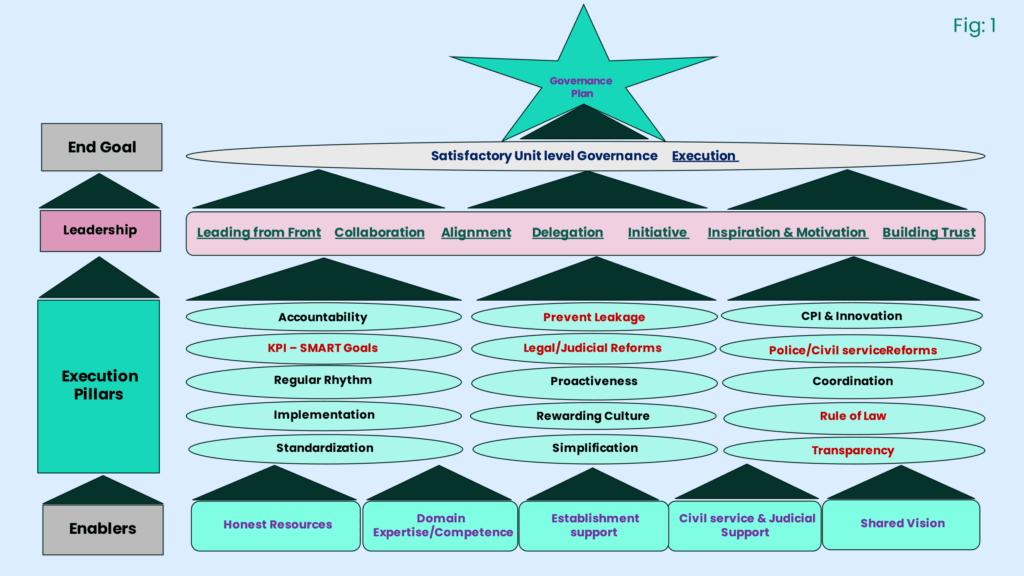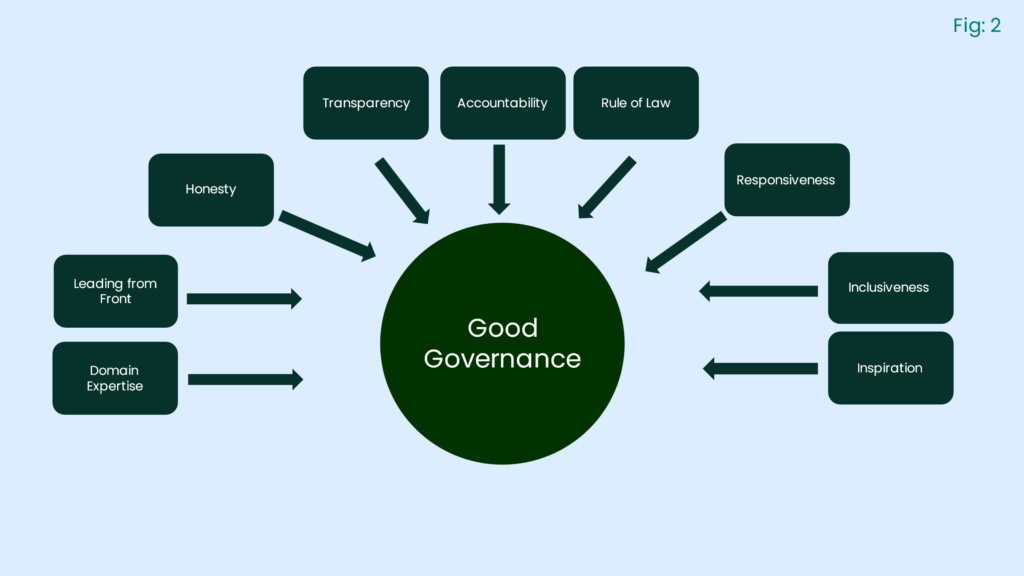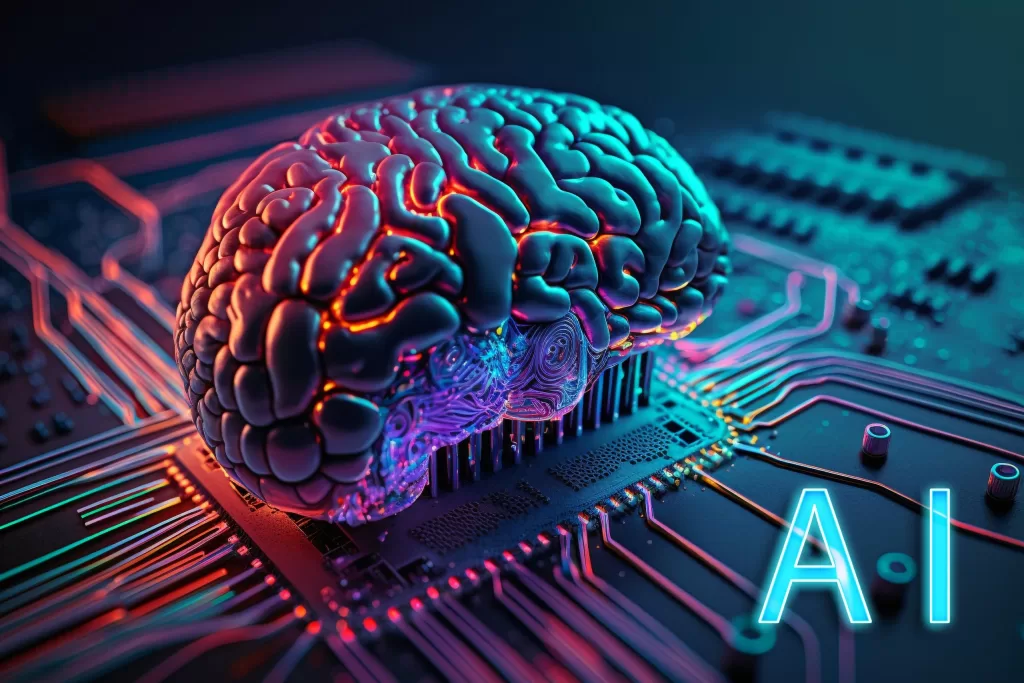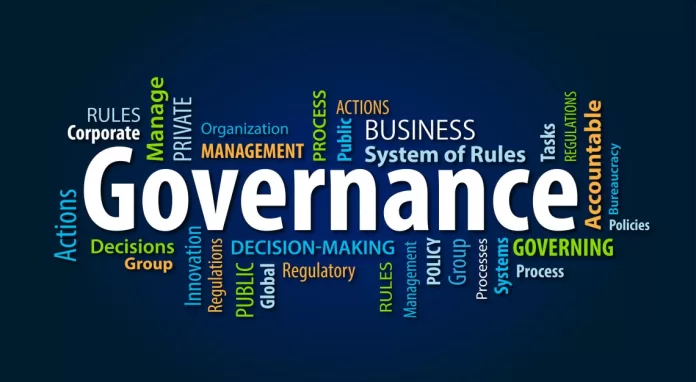Good governance is of paramount importance for the prosperity of all nations regardless of being developed or under developed. In order to understand this mechanism, we need to explain comprehensively all the important dimensions of good governance out of which, the rule of law is of utmost importance. Good governance is seen as a key factor in ensuring national prosperity, as it creates a culture of reforms, implementation, pro-activeness, rewarding behavior, rhythm, and accountability. In many countries where good governance model is working successfully, it is seen that good governance is important for the economic and social development and its promotion creates healthier, more vocal, and democratic societies.
A governance operating model may assist the leadership and management in fulfilling their governance roles. Such a model is likely to enable the management and the executive leadership organize the governance structure and the mechanisms by which governance is implemented.
Conversely, the lack of a governance operating model may lead to an incomplete or faulty governance structure, or to inconsistencies, overlaps, and gaps among governance mechanisms. Pakistan’s governance situation is somehow reflecting exactly what is stated above due to gaps, overlaps and inconsistencies.
Keeping in mind the golden principle “Honesty is the best policy “, the main objective of this indigenous document is to develop an executable governance model that could fulfill the needs of the people of Pakistan in terms of day-to-day governance in government functions and ensure the deliverance up to the grass root level. The model is applicable to all the government institutions, their subsequent functions and relevant third parties. The word “unit” in this model is meant to be for either a tehsil, a district, a division, province and/or the whole country.
There are four levels of governance – Union Council/Town committee, District Council/Metropolitan Corporation, Provincial and Federal. Every country, regardless of the form of government runs on two models i.e. Governance and Deliverance. In the Deliverance Model, it is the duty of the government to provide every citizen; basic needs, guarantee of constitutional rights, basic education, primary healthcare, clean water, sewage, and cleanliness. Thus it is imperative to have a governance model to ensure every citizen gets the basic necessities of life at his/her doorstep.
A few key ingredients in governance are imperative like Coordination/follow up, implementation, accountability, and quick justice. Generally, the worst system can deliver with honest people leading it and conversely the best system can collapse with corruption and dishonest people at its head. The structure of provincial and federal governments is well defined in the Constitution, however, the structure of union and district council is not well elaborated. There is an urgent need to address this, without an efficient local government structure citizens cannot get even the necessities guaranteed in the Constitution. In Pakistan, the failure of governance also leads to failure of law and justice, terrorism, economic meltdown, lack of inter provincial harmony, poor healthcare, decay of merit, fundamental rights, and uncontrolled growing population.
Moreover, no social services, criminal concentration of wealth, tax evasion, no food security and all policies made by foreigners and consultants have added to an already drowning governance situation.
Artificial Intelligence (AI) approach to change the system (Blockchain approach) could be adopted to support governance. We must work for convincing the society to take interest in reforms and encourage the debate on the major issues and problems.

The main model is shown as in (Fig:1) that consists of three main areas – that are, Leadership, Execution Pillars, and Enablers. The characteristics of the leadership mentioned in the main model are Leading from the front, Inspiration & motivation, Initiative, collaboration, Alignment and building trust.
The major functions in the execution pillars as mentioned in the main model are, Honest people/resources along with Domain expertise, Inspirational & Motivational Leadership who could lead from front, Commitment, Inclusiveness & Clarity in the shared vision, Key Performance Indicator (KPI) Based units and organizations along with SMART goals, preventing leakage in the system (smuggling, power theft, tax evasion etc.)
Introducing reforms culture in all main functions (Law & Justice, Civil service, Police/Jail, etc). The key factors in the Enabler domain are, honest people with subject expertise, government support and shared vision.
The Good Governance mechanism is shown in (Fig:2) that mainly describes the principals of good governance to be executed for positive outcome.

The sub model mechanism in (Fig:3 to7) show the further segregation of some of the important domains mentioned in the execution pillars.

Governance Model Elaboration & Terminology
• Follow high character community service type leadership model and focus on governance while in power with the aim to serve and deliver for the betterment of people.
• Promote E-Government
• Remove hurdles during execution and hold people accountable.
• Develop standardization across all the functions in Government.
• Regular rhythm with government structures and set Key Performance Indicators for all government functions.
• Find devoted, qualified, and capable people and appoint amongst all domains of functions in the society.
• Prevent leakages in the system. No system can perform in the presence of leakage which includes smuggling, theft, and tax evasion.
• Remove corrupt civil servants and feudals who create hurdles and do not allow the fruit trickle down to people. Replace with honest executors.
• These corrupt people are installed by design. Make examples of them with punishments.
• Reforms in law and justice are critical for effective punishments.
• Bring clean leadership in all spheres of life and government structure.
• Use effective coordination, implementation and accountability as key factors for day-to-day governance, and in this regard, follow up of critical executions is very important.
• Install honest officers in all spheres. Generally, the worst system can deliver with honest people leading it. But the best system can collapse with corrupt and dishonest people.
• Inspirational leadership needed. Perform actions that make people more successful, raise morale of persons, help the needy in all forms, do not shy away from undertaken small jobs so as to demonstrate work ethics. (No work is low/blue collar. Be a leader and good manager at the same time).
• Build up a district unit model as a pilot. Set plan and governing TORs, honest experts and coordinators, honest lawyers, and judges.
• Rhythm with coordinators and execution teams and monitor KPI. Use support of the Government/Establishment to remove hurdles.
• Simplification of the model. Industry 4.0 (next industrial revolution)
• Lawyers’ education level, Legal “Stay” system needs more diligence and it has been noticed there is no diligence for setting limits for pending court cases (takes months and even years).
• Police reforms for supporting good governance
• Accountability of Judges and lawyers and their performance indicators monitoring based system needs to be developed.
• Simplification of the legal system.
• Women empowerment and their economic opportunity is fundamental for the governance model
• Elected people governance Model (Governance by Elected People).
• Simplification: Governance at all levels should be simplified.
• Civil service revamping/reforms: CSS exam must not be the only criteria. Revamp CSS criteria tailored to people of Pakistan.
• Political party reforms needed for better leadership and governance. Political parties need to ensure develop SMART manifestos with clear action plan & position papers. Political parties must work for building plans for local investment, building people’s trust, innovation and reform in education and other areas mentioned in the model. In this regard, political parties must develop certain mechanisms and expertise so that they could be able to create practical and executable manifestos backed up by policy papers to demonstrate how the manifesto will actually be implemented. Currently all political parties are preparing manifestos in a haphazard manner without any due diligence and there is no clear path forward on how manifesto will be implemented.

Deliverance Mechanism in the Governance Model
Union Council/Town committee: A Union Council/Town committee should be responsible to provide, supervise and manage below areas.
• Middle school.
• Basic Health Unit.
• Clean water.
• Sewage and cleanliness.
• Streets maintenance.
District Council/Metropolitan Corporation
A District Council/Metropolitan Corporation should be responsible.
• High School and colleges
• Community/District hospitals
• Building Roads
• Policing & law enforcement
• District & lower courts
• All Record keeping (land, marriage, birth, death etc.) except NADRA, Motor vehicle and driver Licenses.
Provincial Level
A Province should be responsible to provide, supervise and manage below areas.
• Funding, training, and supporting basic governing units
• Law enforcement & anti-corruption
• High courts
• Colleges and universities
• Agriculture and Trade
• Hospitals and professional education
• Motor vehicle registration/ Driver’s license
• Government Land management
• Roads and highways
Federal Government
Federal Government should be responsible for following areas.
• Regulatory authorities, Law enforcement, FIA, NAB, etc.
• Economy
• Defence & Foreign affairs
• Utilities, Electricity, Gas, etc.
• Mining
Conclusion
Pakistan has faced various hurdles since its creation in 1947, specifically related to law and order, limited access and poor performance of the court system, and democratic instability. Democracy and effective governance are interrelated factors. Pakistan has been seeing a lot political unrest since independence, resulting in huge and unmanageable governance challenges. Corruption is one of the major issues that has affected governance in Pakistan. Good governance is built on the foundation of accountability, however this is not familiar in Pakistani political landscape. Good governance necessitates accountability but no genuine effort in Pakistan has been initiated to ensure accountability and transparency.
Accountability and corruption are the two factors that heavily interdependent. The lack of accountability has nourished and promoted the corruption culture in the country. Controlling corruption and misuse of power and privileges requires strict accountability but poor governance has resulted from the country’s crippled accountability system. Pakistan was placed 116th out of 176 nations on the Global Corruption Perception Index due to pervasive corruption 1. The outdated induction system, which has been in place for decades as a matter of status quo policy, is one of Pakistan’s key governance concerns. According to the terms of reference for employment, both the Federal Public Service Commission and the Provincial Service Commission must revisit the selection criteria. These organizations are enlisting misfits to fill critical positions in the country. The induction system must be based on merit.
These issues have hampered Pakistan’s ability to grow smoothly and in a sustainable manner. Knowing that the good governance is critical for the long-term progress, the most fundamental causes of poor governance in Pakistan include democratic instability, corruption, lack of accountability, lack of honest leadership, lack of transparency and absence of rule of law. Noticing all above mentioned problems, a comprehensive effort has been made by GSGES team to develop an indigenous document for an executable governance model that could fulfill the needs of the people of Pakistan in terms of day-to-day governance in all government functions and ensure the deliverance up to the grass root level. This model has been cross referenced with other functioning models in the modern and under privileged world and it can be proudly said that this model is best fitted and tailored to the needs of the people of Pakistan.
Acknowledgement:
The subject Governance Model has been developed by GSGES platform (Global Space for Geo Economics & Strategy). The host and author is thankful to GSGES and Rising Pakistan team mentioned below for their contribution and feedback to complete this model.
Host and Author
Anees Hafiz (Twitter ID: X-2)
Core Team
Col ® Maqbool, Col ® Adnan, Dr. Ahsan Rajput, Mohammad Shafique, Khurram Shahzad Butt, Sumaya Mirza, Dr. Raheela Khalid)





